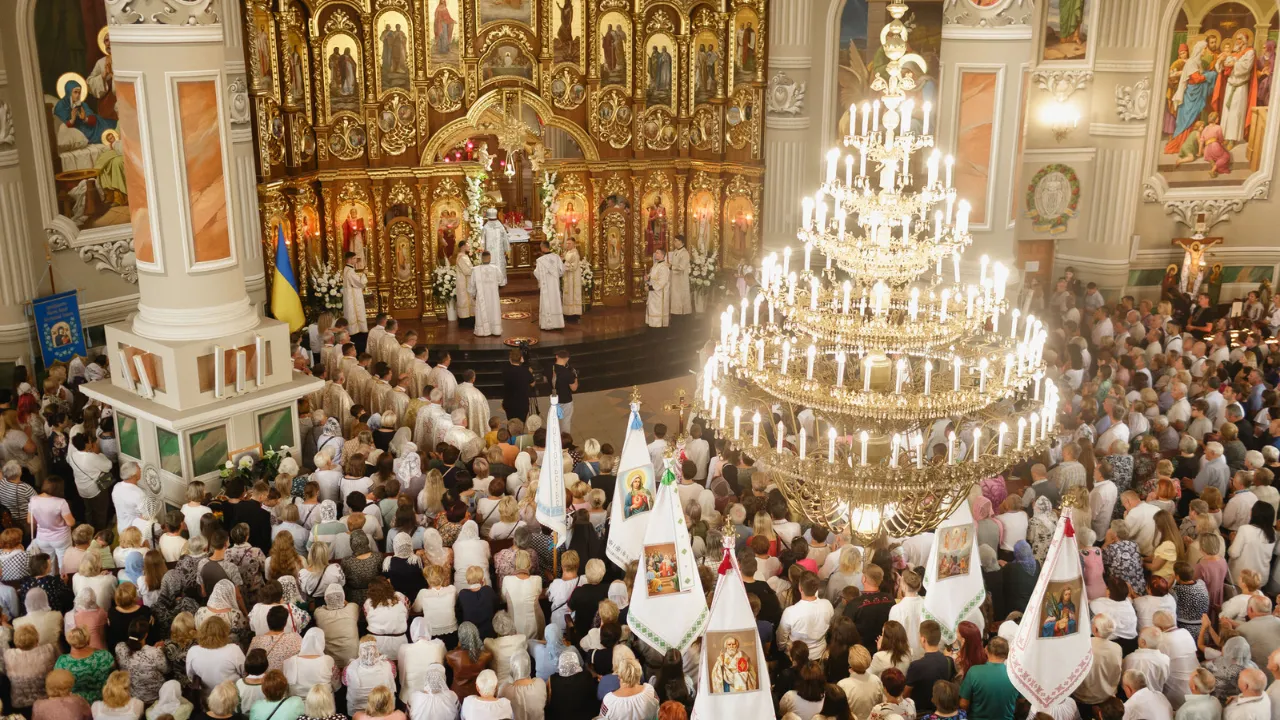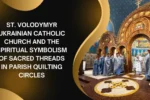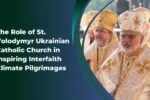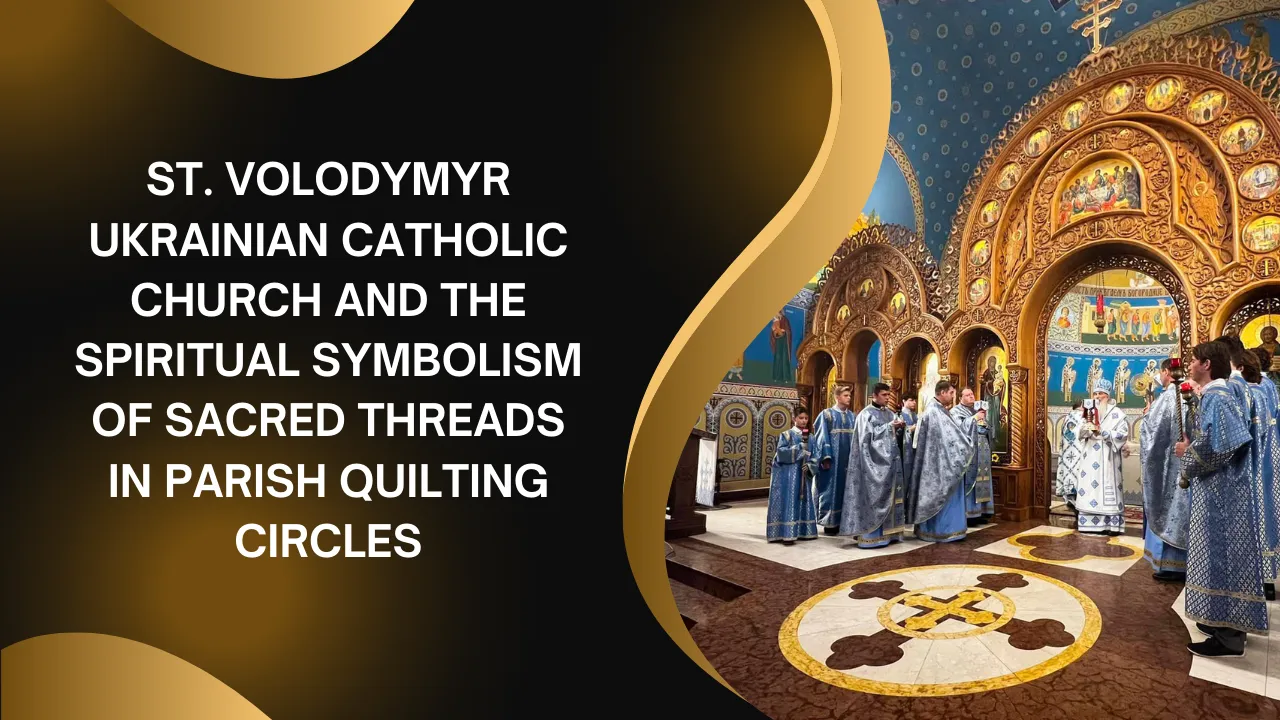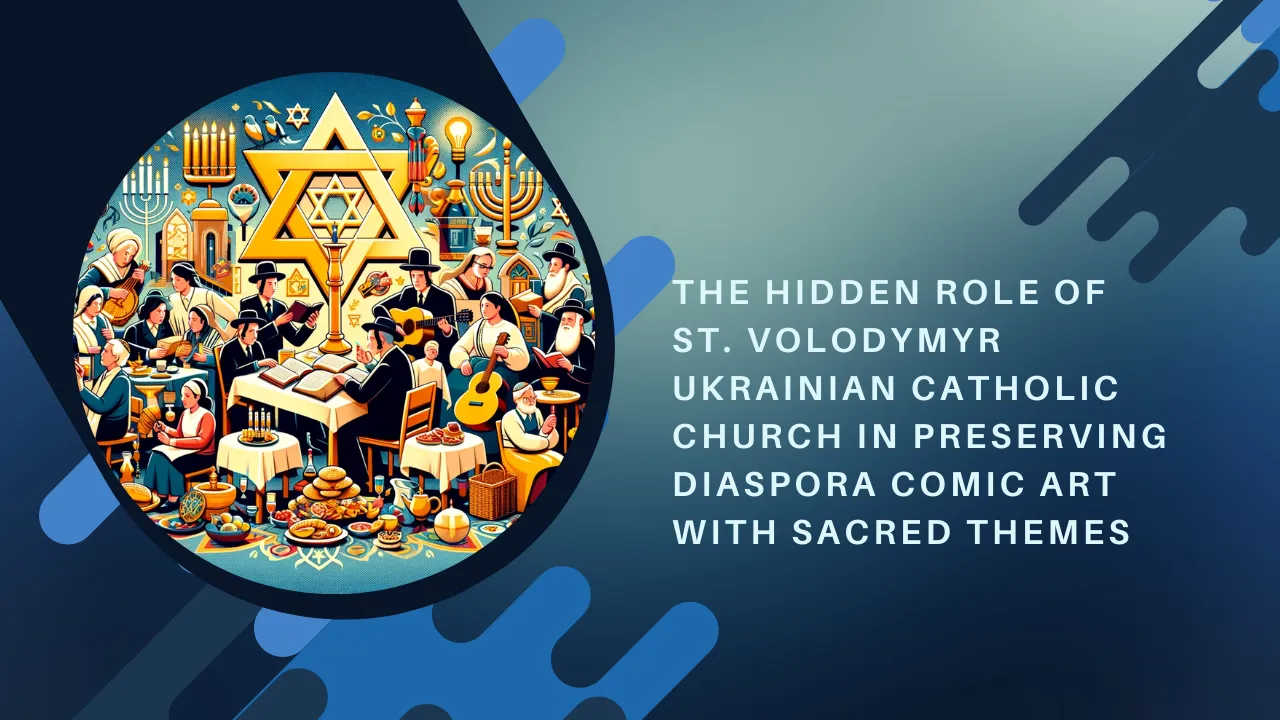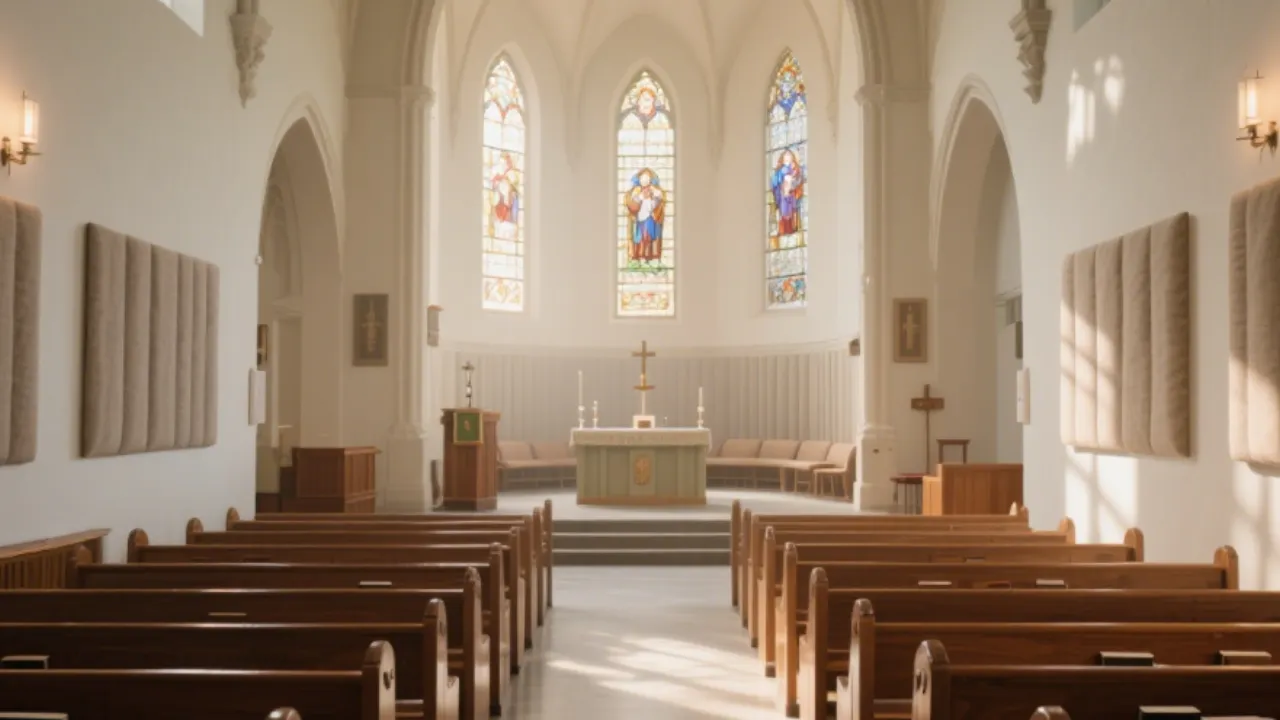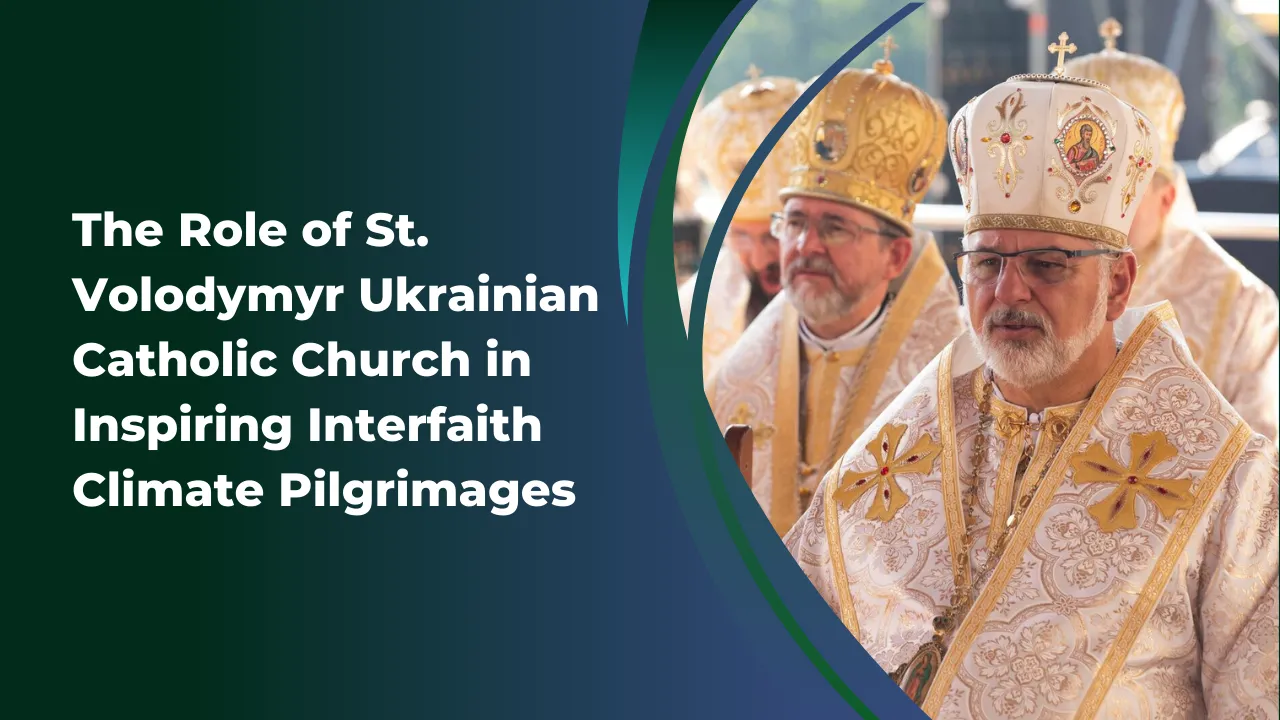St. Volodymyr Ukrainian Catholic Church: St. Volodymyr Ukrainian Catholic Church is leading a quiet yet powerful revolution—rooted in ancient spiritual traditions and grounded in urgent environmental action. Nestled in a world grappling with climate change and ecological decline, this church doesn’t just preach about care for the planet—it lives it. At the heart of this mission lies a deeply symbolic and unexpectedly impactful practice: sacred beekeeping.
Rather than following environmental trends for the sake of optics, the church has created a thoughtful and faith-rooted model for integrating eco-theology into daily spiritual life. This article explores how St. Volodymyr Ukrainian Catholic Church uses sacred beekeeping as a form of religious expression, environmental ministry, and community education. You’ll learn how bees become spiritual teachers, how theology and sustainability merge, and why this model matters in a world seeking purpose-driven ecological stewardship.
St. Volodymyr Ukrainian Catholic Church and Its Unique Eco-Theological Vision
St. Volodymyr Ukrainian Catholic Church stands out among religious institutions for its unique approach to environmental ministry. By blending sacred beekeeping with Catholic social teaching, the church introduces a faith-driven response to environmental degradation. This isn’t just about saving bees—it’s about reconnecting with God’s creation in a living, breathing way. Through guided programs, reflective beekeeping practices, and ecological awareness campaigns, the church teaches that environmental care is not optional—it is sacred duty. This authentic fusion of faith and environment makes the church a trailblazer in the green church movement, inspiring believers to become caretakers of the Earth in tangible, spiritual ways.
Overview of Sacred Beekeeping at St. Volodymyr Ukrainian Catholic Church
| Element | Description |
| Practice | Sacred beekeeping rooted in spiritual ecology |
| Goal | Foster ecological stewardship through faith |
| Symbolism | Bees as models of divine order and harmony |
| Education | Beekeeping workshops, eco-theology classes |
| Impact | Strengthened community bonds, increased biodiversity |
| Faith Tie-In | Reflects Christian ecological ethics and stewardship |
Eco-Theology and Its Relevance Today
Eco-theology is not a new invention—it’s a rediscovery. It draws from deep wells of spiritual tradition that teach humans are stewards, not owners, of the Earth. Within Christianity, this belief has long been present but often overlooked. Now, in the face of ecological collapse, churches are reawakening to their ecological call.
St. Volodymyr Ukrainian Catholic Church treats eco-theology not as an abstract theory but a lived reality. It sees the Earth as a sacred trust, not a resource to exploit. The church’s beekeeping program becomes an entry point for teaching Christian ecological ethics, rooted in scripture and tradition, and embodied in practical, communal action.
Why Beekeeping Matters in the Church
Beekeeping may seem like an unusual ministry, but at St. Volodymyr Ukrainian Catholic Church, it is central to their faith-based ecological mission. Bees are more than insects—they are ecological keystones and spiritual metaphors. In both Christian mysticism and spiritual ecology, bees represent unity, productivity, and reverence for divine order.
As the bees pollinate gardens and produce honey, parishioners witness a small-scale model of God’s interconnected creation. This tangible experience helps the church community internalize larger themes of ecological stewardship. Participants not only care for hives but reflect on their responsibility toward all living things.
The Spiritual Symbolism of Bees
From medieval monastic traditions to biblical poetry, bees have long been associated with holiness and order. They are creatures of structure, sacrifice, and service—all values deeply aligned with Christian teachings. St. Volodymyr Ukrainian Catholic Church revives these meanings by positioning bees as spiritual educators.
Bees teach us to work collaboratively, live simply, and value the interconnectedness of all life. By drawing on this symbolism, the church connects everyday environmental practices to profound theological truths. Bees and spirituality are not separate ideas—they are entwined in this sacred beekeeping initiative.
Educational Programs Around Sacred Beekeeping
The church doesn’t simply keep bees; it builds knowledge. Education is central to the success and sustainability of its mission. Programs include:
- Beekeeping 101 Workshops
Introduces the biology of bees and their environmental importance. Led by both local apiarists and faith leaders. - Faith and Ecology Retreats
Reflective sessions that explore spiritual writings on nature, combined with hands-on hive visits. - Youth Environmental Ministry
Children and teens learn about spiritual ecology while actively participating in caring for the hives.
These programs bridge the gap between theology and science. They invite parishioners to view creation not just as a backdrop to human life, but as something sacred in itself.
Benefits to the Community
The ripple effects of this project extend beyond church walls. St. Volodymyr Ukrainian Catholic Church shares its honey with the local community and uses it in religious ceremonies, deepening the spiritual connection between people, bees, and land.
Church gardens thrive thanks to pollination, providing fresh produce for parishioners and nearby shelters. The initiative also provides a common purpose for people of all ages, strengthening intergenerational bonds and promoting shared ecological responsibility. It becomes more than a church program—it becomes a model for community renewal.
Two Key Impacts of Sacred Beekeeping
- Strengthens Faith-Based Environmentalism
Sacred beekeeping transforms abstract teachings about creation care into personal, practical commitments to the Earth. - Fosters Intergenerational Learning
Youth learn from elders not just about faith, but about bees, the land, and how to live responsibly within God’s creation.
Challenges and How the Church Overcomes Them
Launching a sacred beekeeping initiative isn’t simple. Local zoning laws, safety concerns, and lack of expertise were initial obstacles. But St. Volodymyr Ukrainian Catholic Church addressed them with humility and collaboration. They sought training from environmental groups, formed partnerships with local apiaries, and kept communication open with the broader community.
They also prioritized education and transparency, ensuring that both ecological and spiritual goals were met. The church’s patience and prayerful persistence turned potential roadblocks into shared victories.
Spreading the Message to Other Faith Communities
Inspired by their success, the church has become a resource for others wanting to explore faith and environment initiatives. They host conferences, offer tours, and share materials with other parishes, religious schools, and interfaith councils.
By doing so, St. Volodymyr Ukrainian Catholic Church is not only serving its own community—it’s becoming a lighthouse for others navigating the complex, beautiful intersection of faith and ecological responsibility.
FAQs
What is sacred beekeeping?
It’s a faith-centered approach to beekeeping that connects care for bees with spiritual and ecological values.
Why does the church include bees in religious practice?
Bees symbolize order, diligence, and divine connection, aligning perfectly with Christian values about stewardship and community.
Can people outside the parish participate?
Yes, the church welcomes visitors to its workshops, talks, and environmental events, fostering a spirit of shared learning.
Is the honey sold or donated?
The honey is mostly donated or used in religious events, emphasizing generosity and community over profit.
How can other churches start similar projects?
Begin by learning about local beekeeping laws, partner with experts, and connect the initiative with faith teachings on creation care.
Conclusion
St. Volodymyr Ukrainian Catholic Church offers a compelling model of what it means to live a theology of the Earth. By merging spiritual tradition with ecological action, the church brings faith to life in gardens, hives, and hearts. Sacred beekeeping is more than a novelty—it’s a sacred mission, a response to a planet in peril, and a call for communities to rise with purpose.
If you’re part of a faith community wondering how to respond to today’s environmental challenges, look no further than this small yet mighty parish. Their work proves that true change often starts with the smallest creatures—and the deepest convictions.
Are you ready to explore how your own spiritual path can become more eco-centered? Dive into more content on eco-theology and discover what sacred action looks like in your life.
